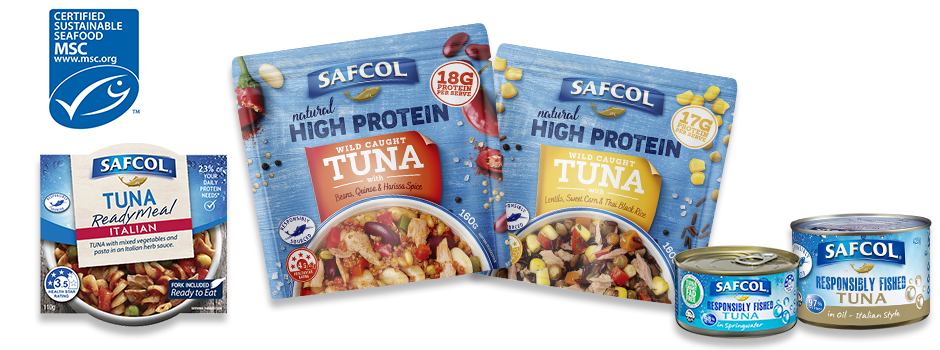How seafood can improve your sleep
Posted on : November 4, 2020
by Ashleigh Feltham
Accredited Practising Dietitian and Accredited Nutritionist
You are not alone if you struggle to fall and stay asleep, with up to 45% of Australians experiencing poor quality or duration of sleep. There are many ways you can promote a good night’s sleep by switching off technology, creating a soothing environment to sleep in and minding the time you drink your last coffee. A factor which you may not have considered is how your diet and specifically fish can help you fall and enjoy a quality night’s sleep.
Getting enough sleep at night is important for many health reasons, including being able to feel and think at your best capacity the next day. Inadequate sleep is linked to disruption of your hunger hormones, which over time can lead to increased risk of being overweight or becoming obese. Not getting enough sleep is also linked to an increased risk of diabetes, heart disease, and metabolic syndrome.
What you choose to eat and drink during the day influences your ability to sleep and stay asleep at night. Fatty fish like salmon and sardines are good sources of vitamin D and omega-3 fat. Both nutrients are important for regulating the hormone called serotonin which plays a key role in helping you fall asleep. Research has shown that including fatty fish 3 times a week improves the rate at which you fall asleep and increases your sleep quality.
Another factor linked to poor sleep quality is inadequate protein over the day. Less than 16% total energy from protein was linked to poor sleep. Over 19% of the calories you eat during the day from protein were associated with a reduced ability to stay asleep. So, the sweet spot seems to sit somewhere between 17-18% of your daily calories being from protein for optimal sleep.
The same effect was seen when carbohydrate was restricted to less than 50% of total energy eaten during the day. Those that restricted carbohydrate were more likely to have difficulty staying asleep.
Looking at a diet pattern which improves sleep, the Mediterranean Diet has been shown to improve your sleep quality, length of sleep, reduced waking during the night, reduced snoring, and reduced insomnia symptoms. This diet includes fish or seafood 3 times a week.
Take home message
There are many factors which can influence your sleep including what you choose to eat. Your diet may be the missing link between you and a good night’s sleep.

References:
- Marie-Pierre St-Onge, Anja Mikic, Cara E Pietrolungo, Effects of Diet on Sleep Quality, Advances in Nutrition, Volume 7, Issue 5, September 2016, Pages 938–949, https://doi.org/10.3945/an.116.012336
- Cecilia Castro-Diehl, Alexis C Wood, Susan Redline, Michelle Reid, Dayna A Johnson, Janice E Maras, David R Jacobs, Jr, Steven Shea, Allison Crawford, Marie-Pierre St-Onge, Mediterranean diet pattern and sleep duration and insomnia symptoms in the Multi-Ethnic Study of Atherosclerosis, Sleep, Volume 41, Issue 11, November 2018, zsy158, https://doi.org/10.1093/sleep/zsy158
- Marcela Z. Campanini, MS, Pilar Guallar-Castillón, MD, Fernando Rodríguez-Artalejo, MD, Esther Lopez-Garcia, PhD, Mediterranean Diet and Changes in Sleep Duration and Indicators of Sleep Quality in Older Adults, Sleep, Volume 40, Issue 3, 1 March 2017, zsw083, https://doi.org/10.1093/sleep/zsw083



